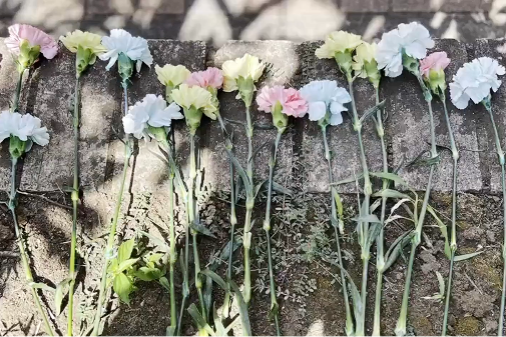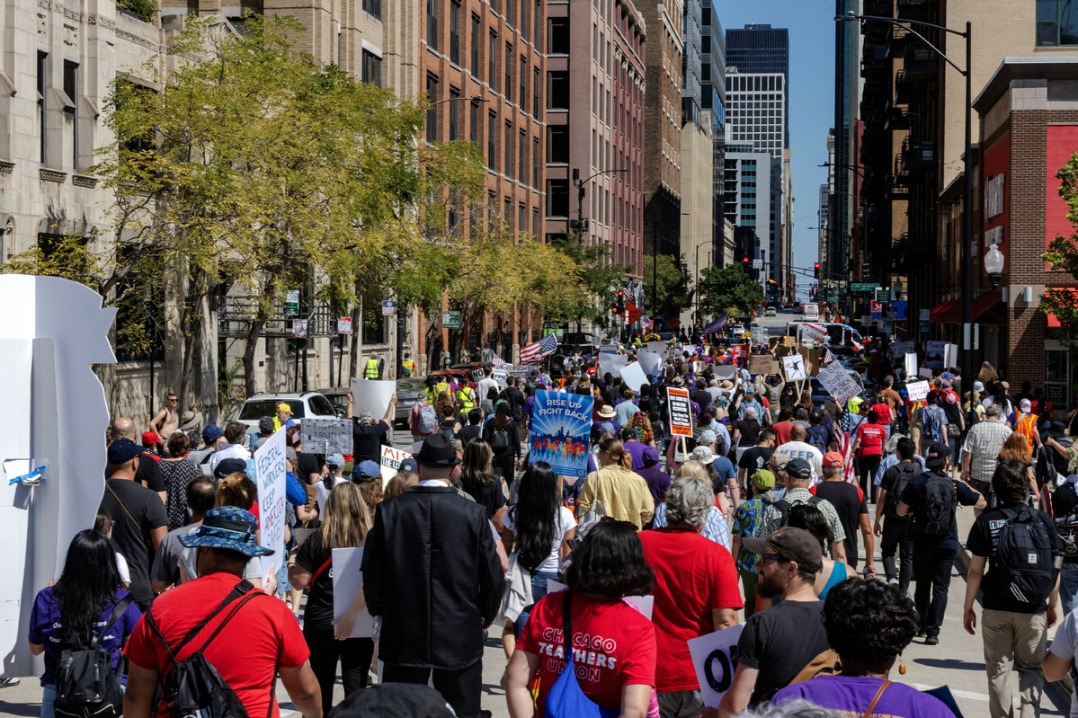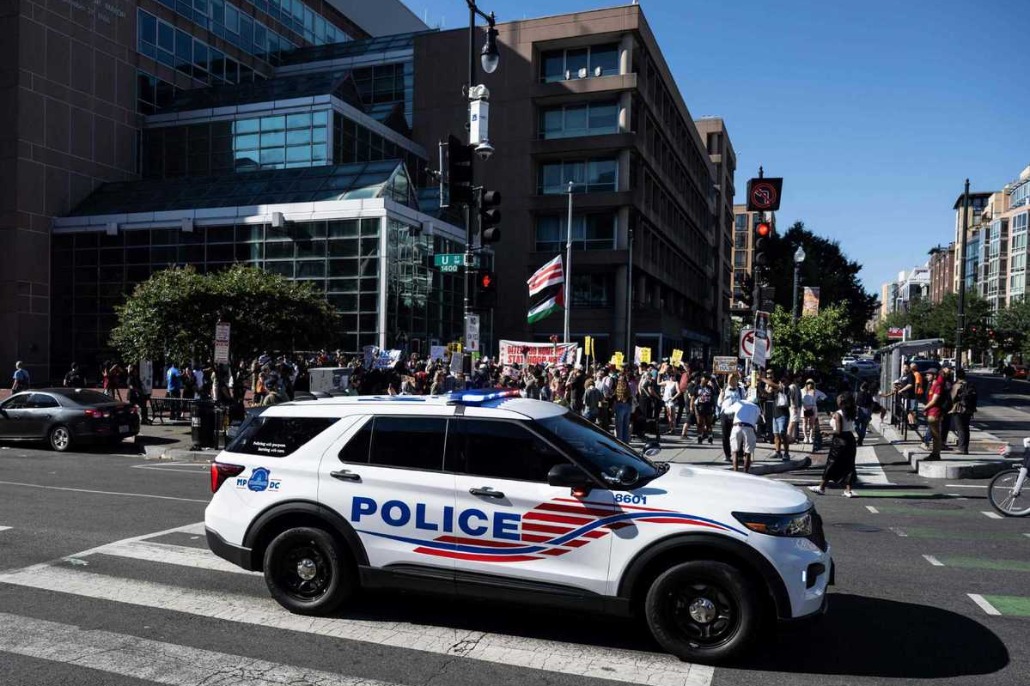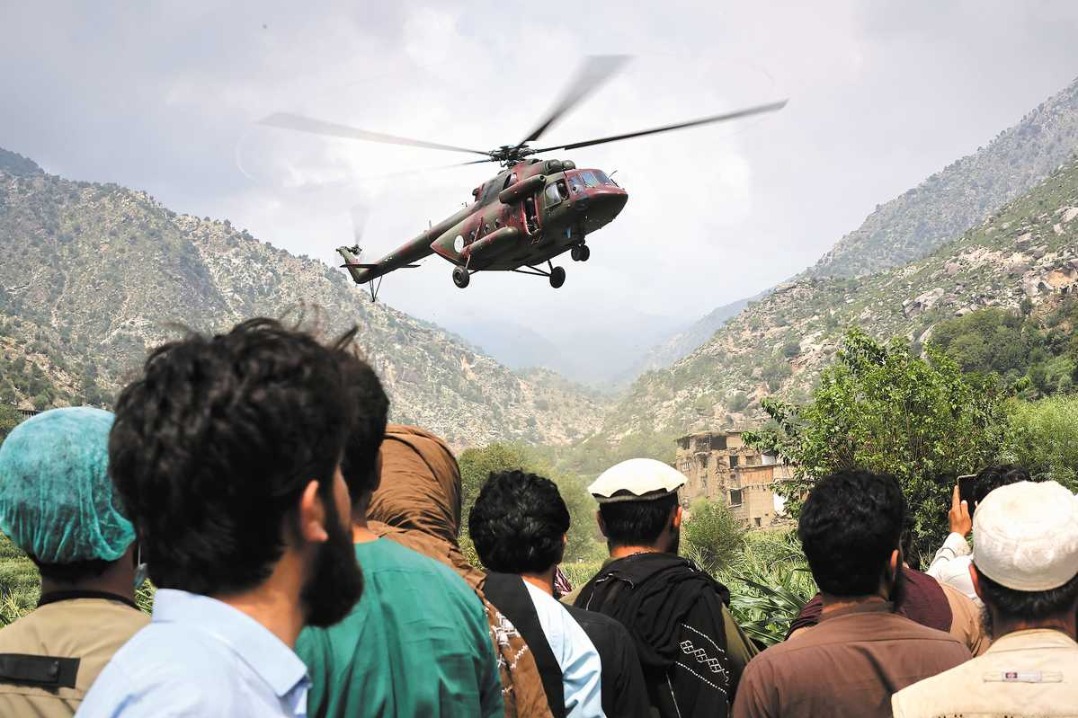Japan urged to look back into history
Memorial service held for victims on 102nd anniversary of Kanto Massacre

Correctly confronting history for Japan means far more than simply acknowledging "aggression" and "defeat". At the 102nd anniversary memorial of the 1923 Kanto Massacre, Japanese officials and scholars stressed that lessons from the past should inform vigilance against rising xenophobia in Japan, to prevent such tragedies from repeating.
A memorial service was held in Tokyo on Monday, marking the 102nd anniversary of the Chinese victims who were killed following the 1923 Great Kanto Earthquake in Japan.
Victims' families from China and the Korean Peninsula, alongside prominent figures from Japan, jointly mourned the deceased. They also urged the Japanese government to face history honestly, offering apologies and compensation.
On Sept 1, 1923, a 7.9-magnitude earthquake struck Japan's Kanto area, resulting in over 100,000 people killed or missing. Amid the chaos of the disaster, rumors of Koreans "poisoning wells" started circulating.
Nearly 800 Chinese residents and more than 6,000 Korean residents in Japan fell victim to massacres orchestrated by Japanese military, law enforcement and nationalist extremists, according to studies.
Mizuho Fukushima, leader of Japan's Social Democratic Party, urged the Japanese government to face the issue honestly. She called on the government to fulfill any compensation decisions already made and to thoroughly investigate the facts while addressing the victims' families.
Maniwa Naoyuki, member of Japan's Koto City Assembly, warned that xenophobia is spreading in Japan, with serious discrimination against foreigners, while the government and political leaders continue to avoid confronting history.
"It is not enough to focus solely on the victims of the atomic bomb. The suffering of Asian countries must also be recognized and passed down through generations. Textbooks should accurately record Japan's responsibility for its aggression, prompting the government to formally apologize and reflect," he added.
In a speech delivered at the memorial service, Wang Lin, minister counselor at the Chinese embassy in Japan, attributed the immediate cause of the massacre to the deliberate spread of rumors that incited social panic.
"The roots of this tragedy can be traced back to Japan's turn toward militarism and the prevalence of extreme nationalism and xenophobia during that era," she said.
Wang emphasized that, 102 years later, Japanese society seems to be forgetting this painful chapter of history. She said the Japanese government has shown signs of regression on historical issues, and some individuals even openly distort or deny history. Wang also called for efforts to uphold justice and prevent a reversal of history.
On Sunday, another memorial event on the same theme was held at Meiji University.
Victims from China and the Korean Peninsula, as well as members of the Japanese Diet from four political parties, revealed the historical truth of the 1923 Kanto Massacre, emphasizing that the Japanese government bears inescapable responsibility. Japanese scholars and officials stressed the need to remain vigilant against current xenophobia and to respect the rights of foreigners.
Hideya Sugio of the Constitutional Democratic Party of Japan stated that the government should acknowledge historical facts and apologize to the victims and their families. He emphasized that commemorating history is not only about looking back but also about serving as a warning for the present, and that xenophobia and historical denial must not be allowed to spread in contemporary politics.
Social Democratic Party's Rasaru Ishii said that "honestly confronting history" means the government must take responsibility for uncovering the truth. It should apologize to the victims and provide compensation, and ensure that history is passed on to future generations through monuments, memorial ceremonies, and inclusion in school education, so that such tragedies do not recur.
Hiroshi Tanaka, co-representative of the Liaison Committee on Alien Rights Law, called on Japan to confront historical issues as part of its social development. He also urged the country to consider how to promote a sense of equality and inclusion for foreign residents.
houjunjie@chinadaily.com.cn


































